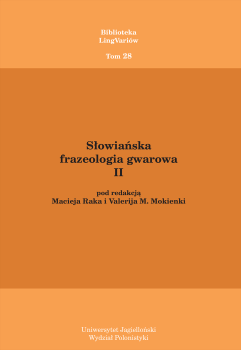Dialektnye leksikalizovannye predložno-padežnyesočetaniâ s komponentom bez v russkom âzyke
Synopsis
THE DIALECTAL LEXICALIZED PREPOSITIONAL-NOMINAL COMBINATIONS WITH THE COMPONENT BEZ IN THE RUSS IAN LANGUAGE
The article considers the question of peculiarity of the linguistic status of lexicalized prepositional-nominal combinations, of the proportion of dialectal lexicalized combinations of such type in the Russian language. The main attention is given to the analysis of role of the component bez in the formation of the semantics of dialectal lexicalized prepositional-nominal combinations. The thesis of the syncretical linguistic nature of the lexicalized combinations is confirmed by the conclusions of the relevance of the meaning of prepositional component bez in the motivational basis of the lexicalized units regardless of whether the substantive component is reinterpreted or not. The degree of idiomatization of the lexicalized combinations with the prepositional component bez reveals the dependence from the lexical-grammatical characteristics of the substantive component. The verbal nouns with the meaning of an abstract processual feature are realized, as a rule, in a direct sense. The semantics of the lexicalized combinations of the preposition bez with the titles of artifacts and somatisms is formed on the basis of realization semantic potential of such naming units, as well as on the basis of various models of reinterpretation of the sign-oriented units with a presentive meaning.





